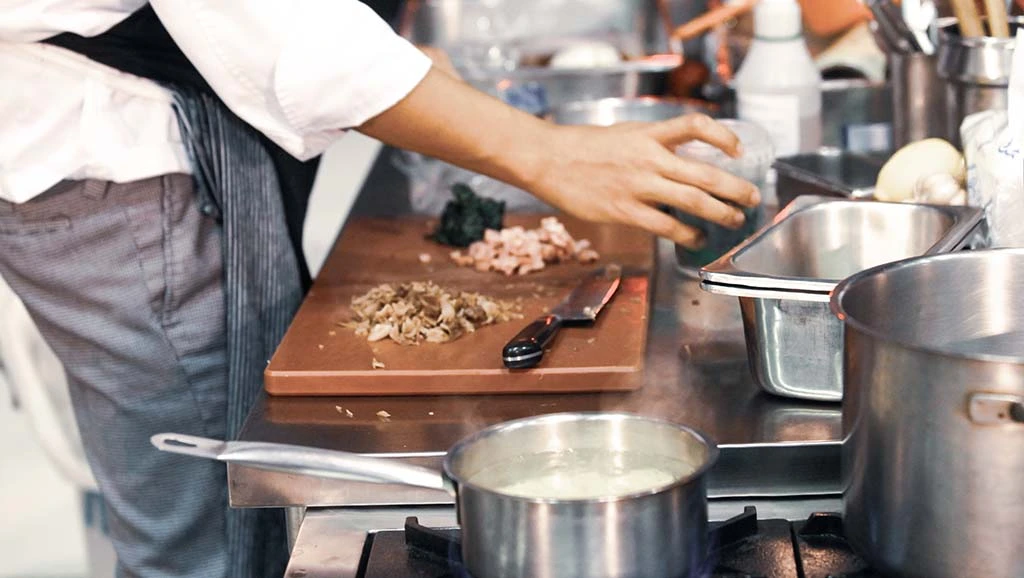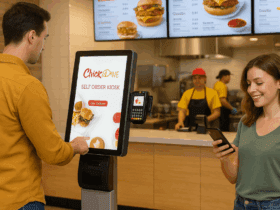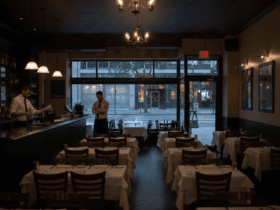It is exciting to open your own restaurant. Once you have drawn up your business plan, secured your capital, and selected a venue, you need to start working on the legal documentation. This can involve licenses to permits that are necessary to run a restaurant. This may be tedious and time-consuming because there is a ton of paperwork to be done.
As licensing requirements change according to location, we have put together ten kinds of licenses and permits that are common across states:
1. DBA and Trademark Application
DBA stands for ‘Doing Business As’ and refers to your restaurant’s operating name, which is separate from your company’s legal name. On the other hand, a trademark application covers all words, names, symbols, and devices you may use to identify your restaurant. Together, the DBA and trademark protect your restaurant’s name. Filing these applications can be done with your state or county, with costs differing from place to place.
2. Business License

A business license is needed to establish a business as a legal entity. As it is based on your restaurant’s address, you need to apply for it through your state government’s website. A registration fee is mandatory and, depending on your location, either an annual fee or a stipulated percentage of your total sales will be claimed. If your restaurant sells liquor, a federal business license in addition to a state one will be required.
3. Employee Identification Number (EIN)
This is another critical document for all businesses. Issued by the Inland Revenue Service (IRS), this is simply a Tax ID number. However, getting an EIN can take a long time as the IRS issues only one EIN per day. Therefore, apply for one well in advance of your planned opening. You can submit your application through the IRS website, mail in your application, or even apply via phone or fax. The EIN is issued free of charge.
4. Certificate of Occupancy
This document endorses that the building in which you plan to house your restaurant has been properly constructed and is habitable. It is issued following a series of inspections, including electrical, plumbing, and fire safety. The procedure for gaining this certification varies based on the precinct. Your state government’s website should have all the information listed and the fees needed to obtain this license.
5. Food Service License

The Food Service License is issued by the city or county health department after an inspection by one of their officers. You can obtain an application form either online or in person. There are different types of food service licenses: temporary, fixed, and mobile. Even after the license has been granted, the health department will carry out regular inspections to ensure your eatery is fulfilling health regulations. They can revoke your license if expectations are not met, so you need to ensure you always maintain the highest standards. Costs and renewal processes vary from place to place.
6. Food Handler’s Permit or Employee Health Permit
All employees handling food and beverages need to be properly trained by attending state-approved courses. These programs focus on proper sanitation processes, food handling, and storage. A Food Handler’s Permit can be purchased upon the successful completion of the training.
7. Sign Permit
Additionally, each city government has its own regulations on signage. In addition to stipulations on size and placement, some governments also have restrictions on design and lighting. If you are renting out space, It is generally a good idea to also get your landlord’s written consent before putting up your sign. The cost for a sign permit is fairly nominal.
8. Resale Permit and Seller’s Permit
Next, you have the Resale Permit that exempts you from taxes for wholesale purchases. This is used for products that are manufactured for reselling – in your restaurant’s case, the ingredients you use. Here sales tax is collected only when your customers purchase the final product and not when you buy items. State requirements for Resale Permits can differ. Along with the Resale Permit, most establishments also require a Seller’s Permit. This classifies your restaurant as a business that collects sales tax and can be obtained from your state government. While there is no cost for this permit, a deposit as security against unpaid taxes, in case your business folds will need to be provided.
9. Music License

Regardless of whether you plan to stream, use a CD, hire a DJ, or engage a live band, you need permission to play music in your restaurant. Failing to do so is as good as admitting to copyright infringements. A payment needs to be made to either The American Society of Composers, Authors, and Publishers (ASCAP) or Broadcast Music Inc. (BMI). Costs are determined by several factors, including whether the music is live or recorded, audio only or audio-visual, and what your opening hours are.
10. Liquor License
As the title suggests, you only need this if you plan to sell liquor. It is issued by the state’s Alcohol Beverage Control (ABC) Board. Some jurisdictions require you to apply for both a liquor license and a wine and beer license. As this is a notoriously prolonged process, it is good to get cracking on this fairly early.
The above list comprises the core licenses and permits your new restaurant will need. There are a number of others that you will have to secure, like the Building Health Permit, Valet Parking Permit and Dumpster Placement Permit. Get a complete list of requirements from your local government authority and start the application process early. Since most of these involve a fee, work out your costs in advance and make sure you have the money to spend. It is a lot of paperwork for sure, but when the diners swarm you will be assured that the effort was worth it!









Leave a Reply